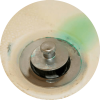Home Well Water Treatment
Well water is an alternative water source for homes, and because well water is usually a source of drinking water, it needs to be treated as such. While city water comes into your home from a treated and monitored source, it is entirely up to you to maintain basic safety and sanitation levels of your well water to ensure that the water you are consuming is safe.
While well water can seem like a cheaper and more reliable source of home drinking water than traditional city water sources, well water also comes with its own unique challenges and risks.
Well Water Problems Solved with our Whole House Water Filtration System:
- Cloudy or Metallic-Tasting Water – due to dissolved iron or manganese
- Scale buildup in Pipes and Residue on Appliances and Dishes – due to hard water
- Stomach Problems – due to bacteria from animal waste
- Rotten Egg Smell – due to dissolved minerals, oil, or gas deposits
- Discolored Water – due to tannins leaching from decaying vegetation
- Nitrates – due to fertilizers if near agriculture or livestock
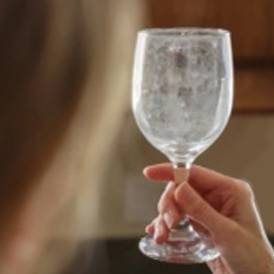
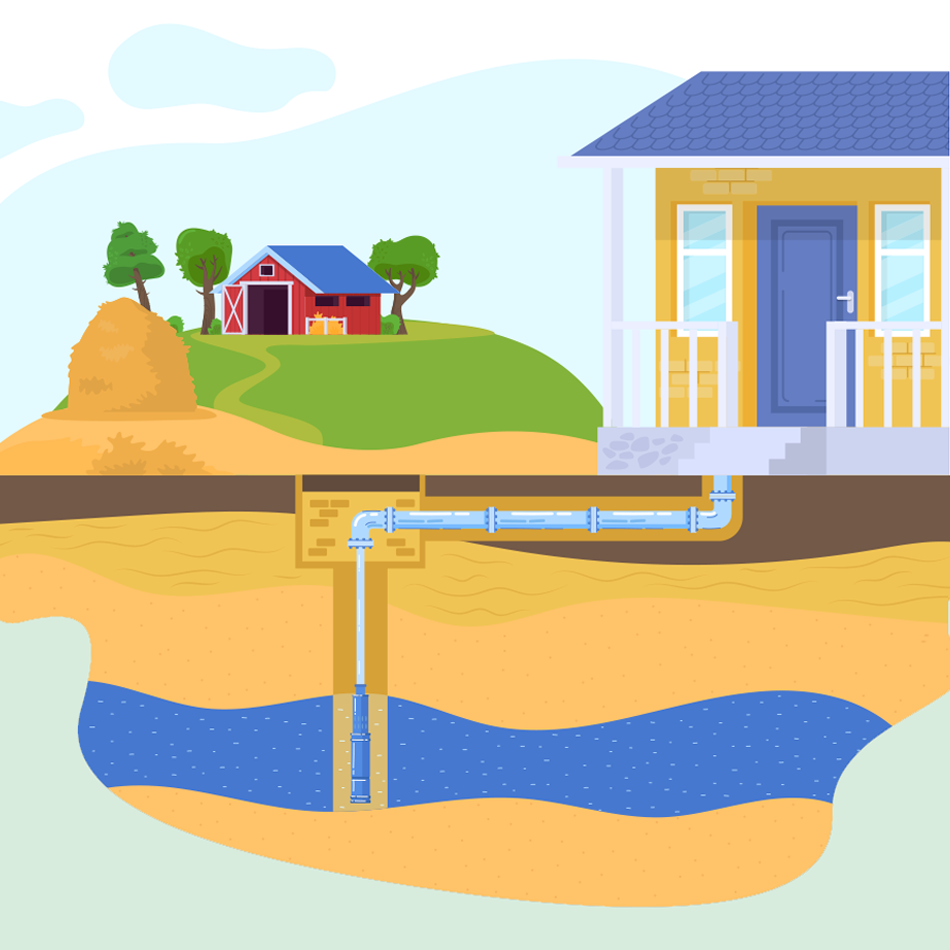
Well water can be very susceptible to contamination because of its proximity to the ground. Runoff from storms, construction, and nearby roads can all affect the quality of well water, and oil, chemicals, de-icing agents and overflow from sewers and water treatment plants can all find their way into well water. Microbes and bacteria such as Giardia and Cryptosporidium, which are found in surface water such as lakes and ponds, can contaminate well water during flooding or in the aftermath of heavy rainfall. In addition to outside sources of contamination, there may be threats to the safety of your well water right in your own home. Nitrates and nitrites, found in animal fertilizers, pesticides, and manure piles, pose a risk to well owners, especially those who live in rural areas surrounded by farmland. And everyday household items found in the home and garage can find their way into your well, especially with improper use or storage. Sewage and waste drainage, motor oil, and household and swimming pool cleaners and chemicals are all potential dangers to your well-being.
One of the major drawbacks of using a well water system in your home is that the responsibility for sanitation and safety falls directly and entirely in your hands. Unlike with a municipal water connection, you will need to have all the information that you require in order to know how to properly treat and care for your well water, as well as understanding the risks for contamination and how to prepare for them. Scheduling regular well water testing can help to prepare you for the proper upkeep of your well water treatment system. A thorough, comprehensive water test will identify any contaminants, bacteria, or other issues that you are facing. Once you have had your water tested, you can choose the correct system for treating your water, one that is designed with your specific water needs in mind. Additional testing on a regular basis will help to ensure that your well water is safe and free of pollutants.
What’s in Your Water?
With so many options available, how can you decide whether or not to install a water treatment system, or choose which one is the best fit for your home? In order to understand what kind of water treatment system will work for you, you first need to evaluate the unique needs of your residential water. An in-depth water test will reveal contaminants in your water and will give you the exact composition of your water. This way, you will have the information that you need to make a decision regarding what products are the best fit for your home. Not all water is created equal, so take the time to make the right choice.
Once your water has been tested, you can start considering your options. Depending on the results of your water test, there are several different options that you can choose to protect your home’s water supply. Click here for your FREE Water Test.
Hard water is a common issue for residential water. Caused by mineral deposits in the water, hard water can produce dry skin and hair as well as creating buildup in pipes and appliances.
Red-orange staining in sinks or tubs is often caused by too much iron in residential water. The presence of iron can also create an unpleasant metallic taste.
Sulfur, or the “rotten egg smell,” can be an unpleasant side effect of hydrogen sulfide gas in residential water. Aside from the smell, sulfur can cause damage to pipes.
The musty “dirt” smell that is sometimes present in drinking water can be caused by common bacteria or even algae blooms.
Water with low pH levels is often the cause of the blue-green stains that appear around water faucets and in tubs and toilets.
Cloudy, milky-looking water could be caused by the presence of suspended solids or by hard water. Suspended solids can come from undesirable sources like runoff from storms or construction sites.
Water Softeners
Water softeners are effective in homes that have issues with hard water. Hard water can affect many aspects of your home. Residue on dishes and glass, buildup in appliances, dry skin and hair, and hardening water pipes are all side effects of hard water and can be costly in the long run.
HOW does a water softener work? Ion exchange or salt water softeners operate by binding negatively charged sodium, potassium or hydrogen resin to positively charged metal ions, drawing the hard minerals out of the water. Salt water softener systems are the most affordable and effective means to treat hard water in your home. We’ve designed this easy graphic to help explain the literal ins and outs of your water softener.
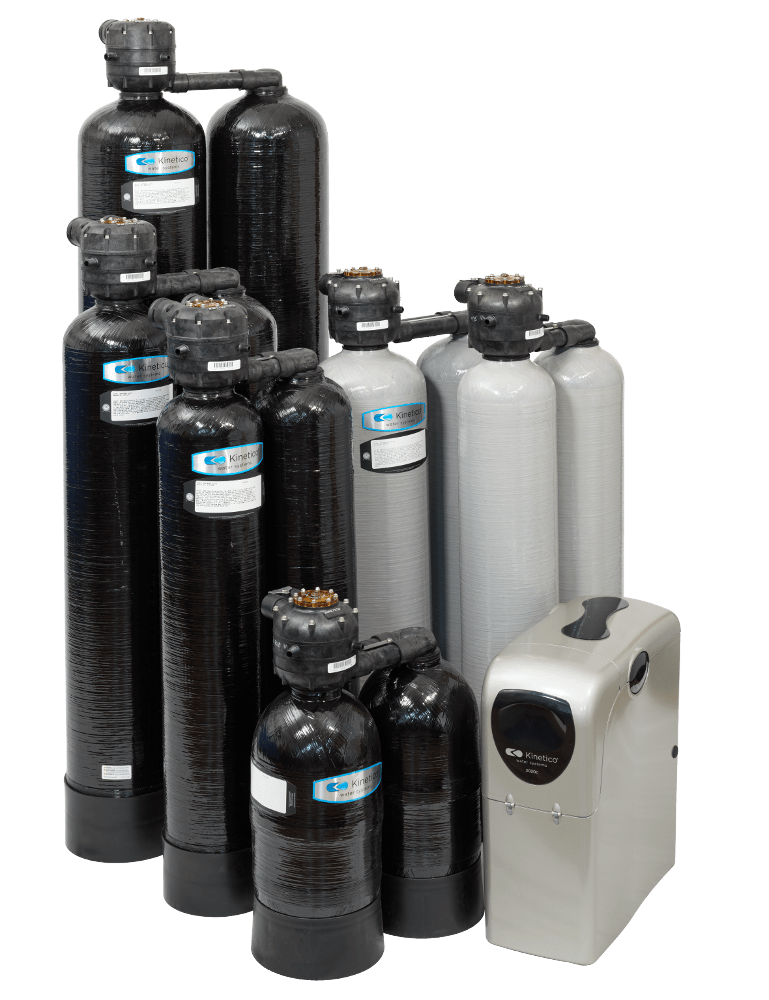
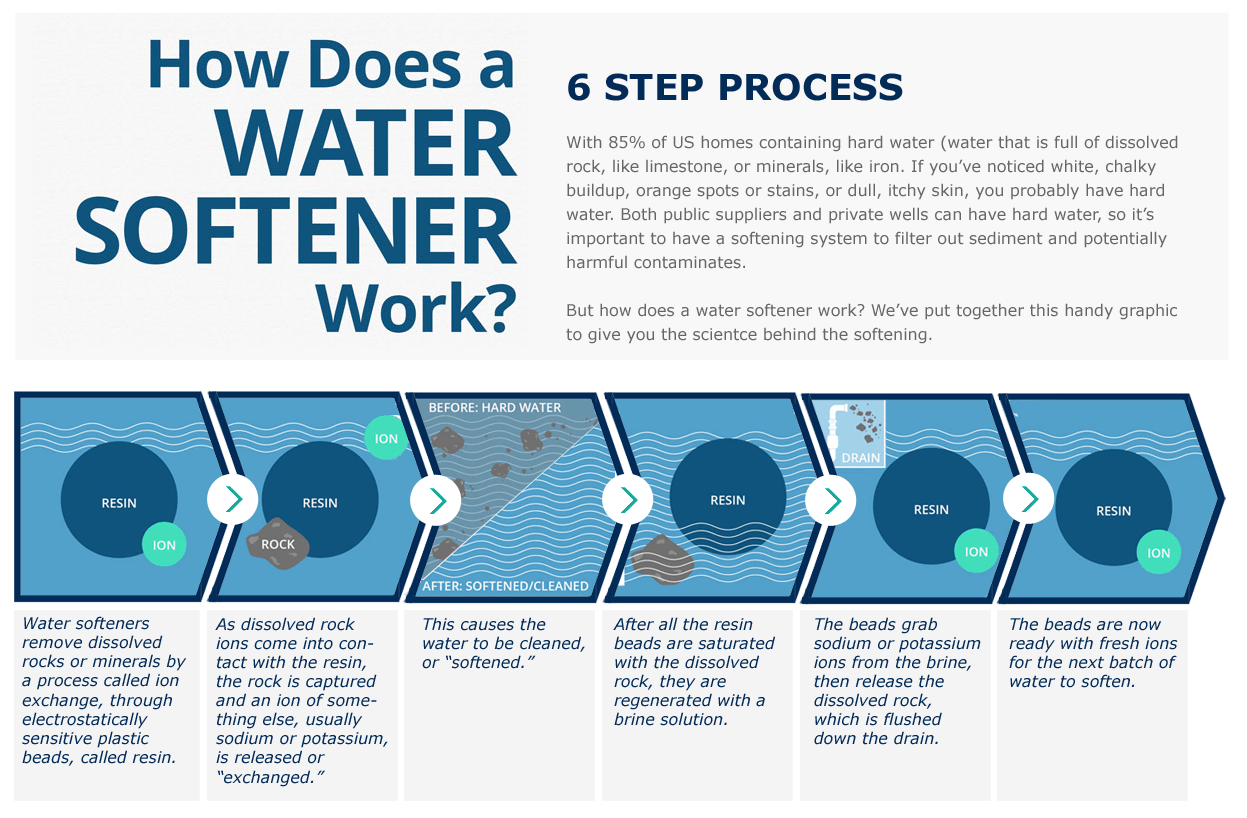
A whole home water treatment system will help to completely filter out any pollutants that might be found in your well. A combination of water filtration, water softening, and water conditioning can meet your needs and purify your water so it’s safe for consumption.







